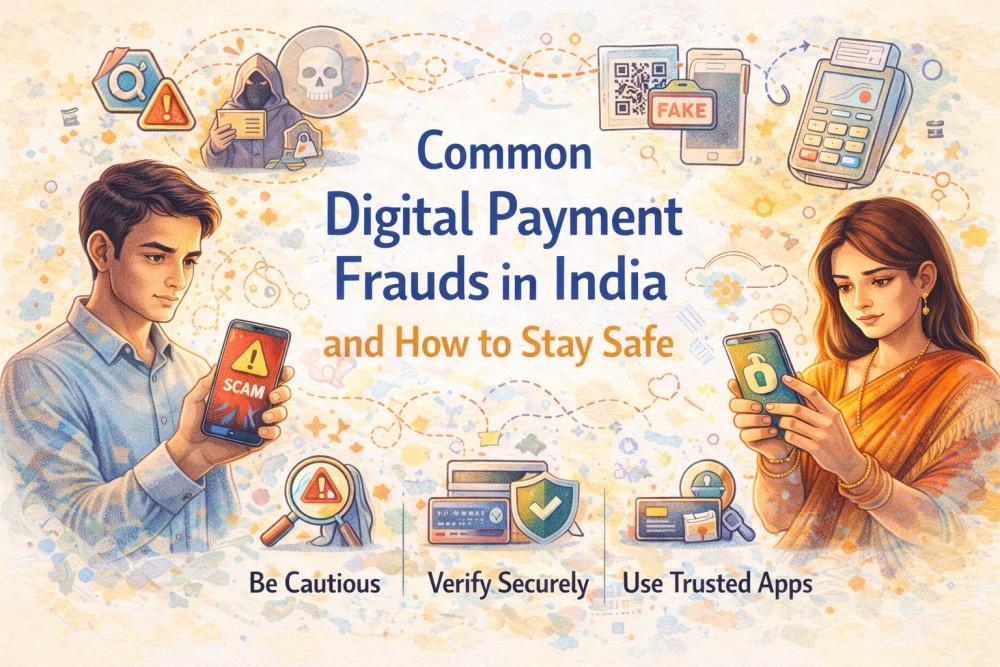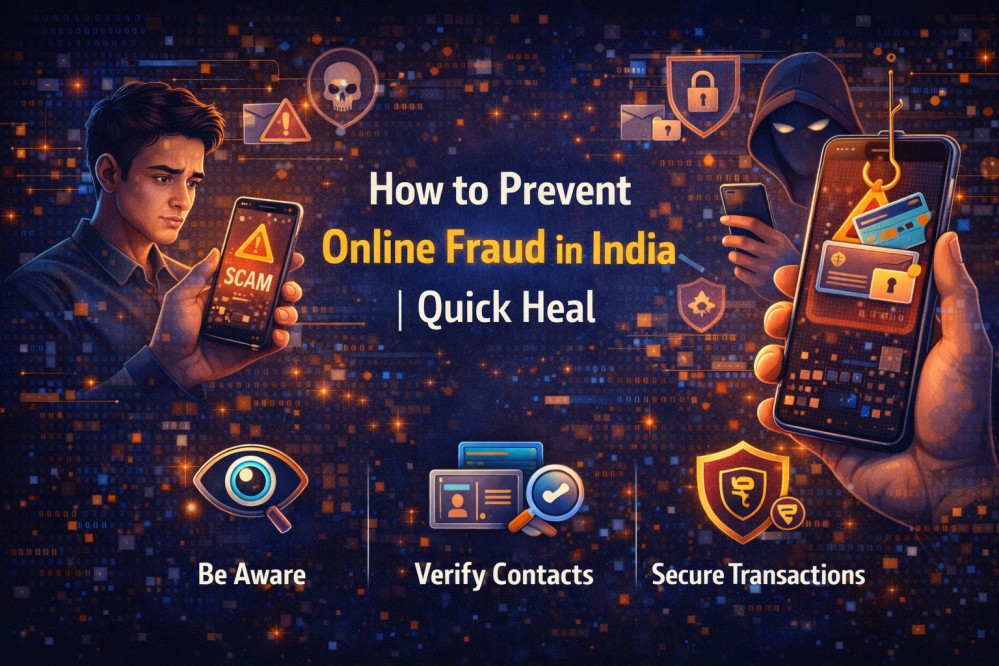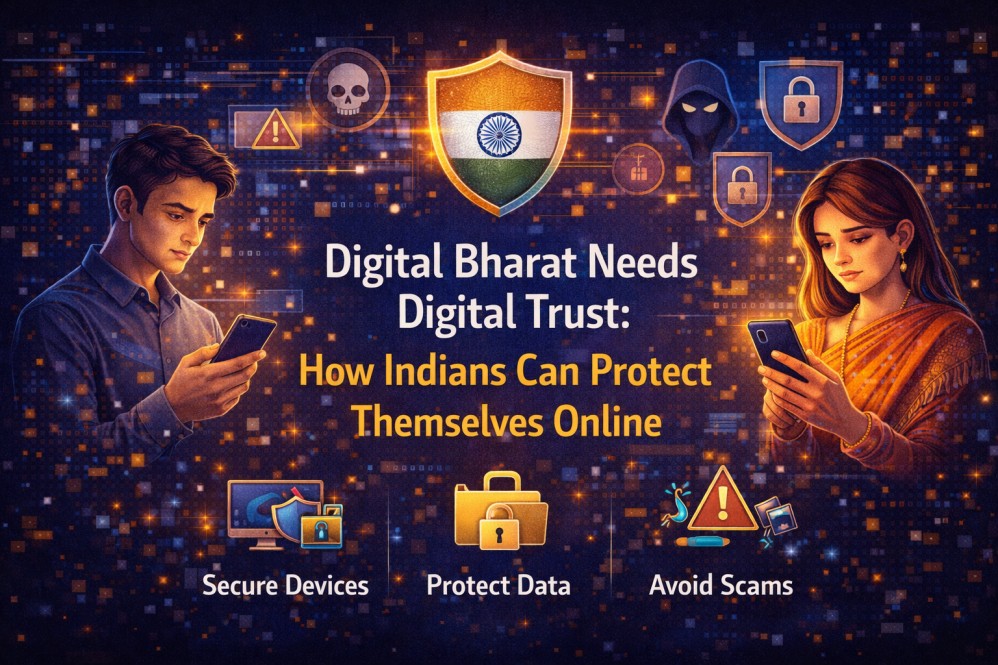
25
Sep
Sep

Scammers Taking Advantage in The Name of Navratri
-
Quick Heal / 5 months
- September 25, 2025
- 0
Navratri festival is major festival in India. Fraudsters know that people are less attentive during festivals as busy in pooja, Garba, Dandiya, darshan etc . However, while people prepare for celebration of this festival, scammers and fraudsters misuses their emotions.
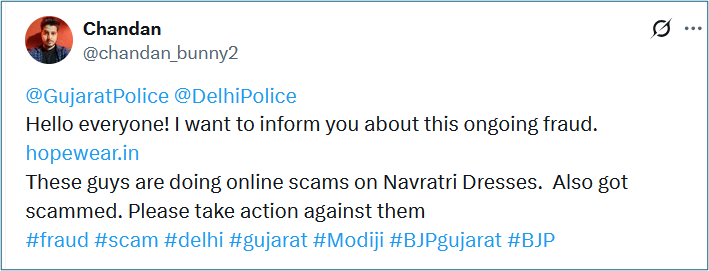

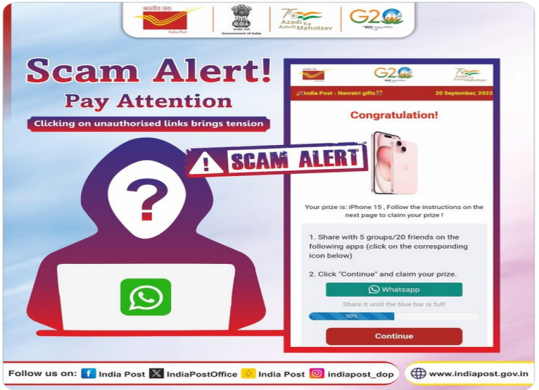 Impact:
Impact:
What Is the “Navratri festival scams”?
During festive sales in India, numerous major brands like Amazon, Flipkart, Samsung, and Apple are participating, which unfortunately has also led to a rise in online scams. Scammers have a new trick up their sleeves, and every time they go for a new way of duping people. Common types include phishing scams, OTP-related scams, fake social media ads, look alike ecommerce stores, and telecom scams.Types of online scams that pick in pace in festive sales
Phishing Scams:
These are the most common type of scams where the scammers send a malicious email, WhatsApp message, or an SMS to the victim pretending to be from a legit ecommerce platform. For example – Scams on Navratri dresses:

Financial Scams:
1] Banking reward apps: Cybercriminals are employing sophisticated social engineering tactics to trick users into downloading malicious APK files. These scams often create a false sense of urgency with messages like “Available only for today” or “Last day!”. They offer enticing rewards such as “Sign up now to enjoy free gift worth $$$”. The impact of these scams can be severe, including monetary loss, theft of personal data, phishing of bank credentials, and unauthorized transactions. Attackers may gain control over the victim’s device, potentially leading to further exploitation. 2] Fake domains impersonating legitimate shopping websites: These scams involve the creation of fake domains impersonating legitimate shopping websites, such as “shoop.xyz” mimicking “shop.com” Cybercriminals distribute malicious links disguised as special festival gifts via WhatsApp, SMS, and email, often using short URLs to hide the original malicious links. Victims who click on these links are presented with forms requesting personal details and access to contacts, messages and call records. 3] OTP related scams In this scam, the scammers pretend to be customer support of delivery agents and call people to tell them that there is an issue with the delivery. What follows is a web of stories to trap the customers and then finally ask for an OTP to validate payment. Now, by chance, if the victim shares the OTP, these scammers can use it to login to the former’s account and steal data and even monetary assets. 4] Social Media ‘Fake’ Ads: Most of you would have seen the social media ads showing a very expensive product like an iPhone for peanut price. Now, those who are aware will not click, but most of the people will think that let’s click and we’ll close the site if it’s fake. And if you by any chance make a purchase on these sites, your financial details will be compromised and you can lose more money than the transaction you just made as well. For example – Like previous iPhone phishing scam contains iPhone as Navratri gift with a link to grab the deal. And the moment you click on the link, your system will be compromised. India Post had also issued a warning about the iPhone 15 scam. The postal department also revealed that its logo had been used to send malicious messages to people. Impact:
Impact:
- Financial impacts –
- Blackmail and extortion –
- Legal issues:
How to identify an online scam?
Here are some points that you can look out for to identify a scam:- Callers asking for OTP to validate payment or anything.
- Unbelievable offers clubbed with suspicious links.
- Popular ecommerce store lookalikes with a minutely altered URL.
- Third party discount coupons that promise extraordinary price cuts.
How to stay safe from online scams?
- Verify the Source:
- Never Click Links:
- Don’t Share Information:
- Enable Security Features:
- Use Official Apps and Software:
What to Do If You’re Targeted:
- Contact Your Bank:
- Report to Authorities:

